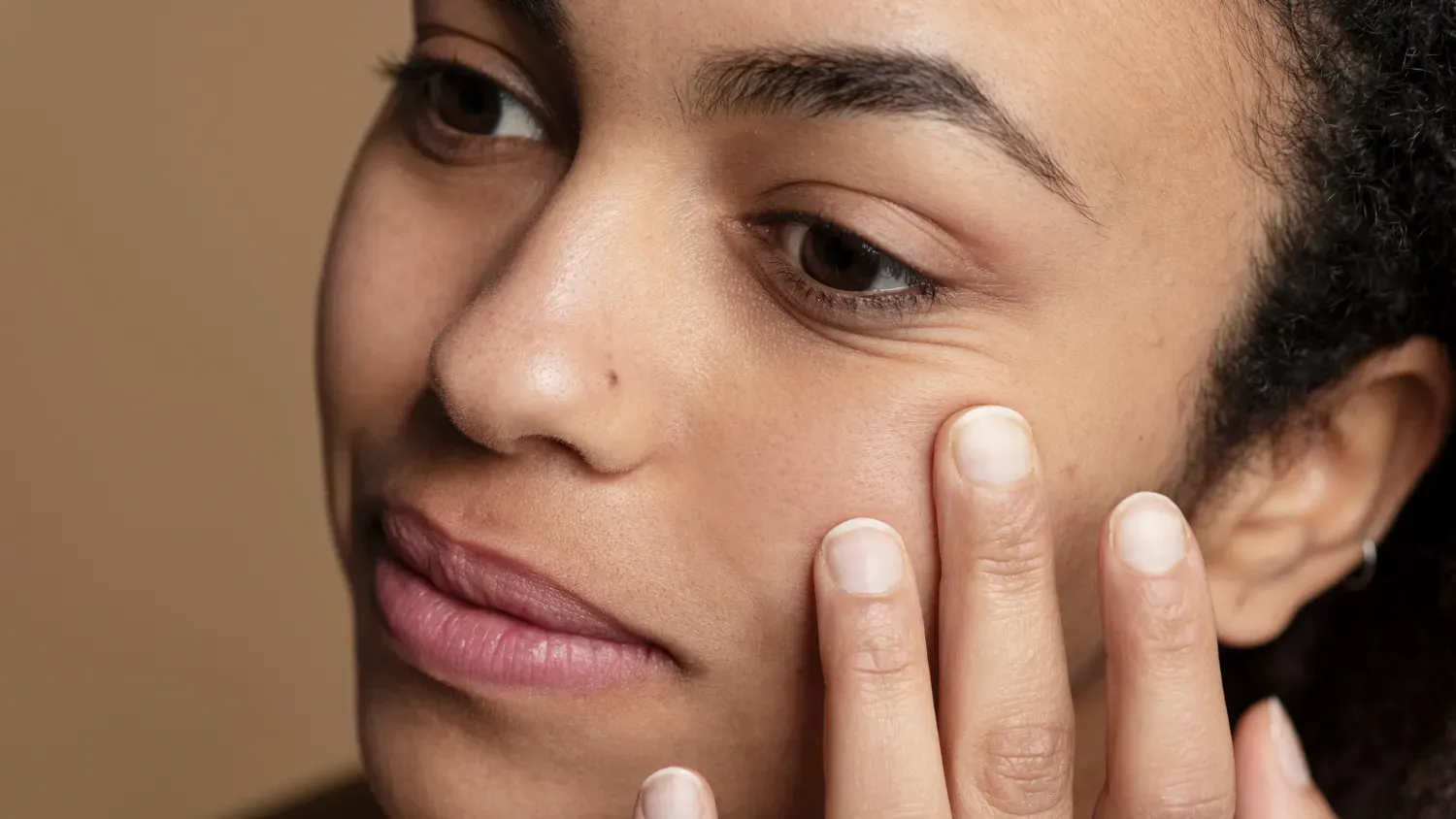How to Treat Hyperpigmentation: 8 Effective Solutions for Skin Care


Hyperpigmentation is a common skin condition that causes dark skin. It can be caused by various factors such as sun exposure, hormonal changes, and skin inflammation. If you're struggling with hyperpigmentation, don't worry! There are several effective treatments and remedies that can help you achieve a more even skin tone. In this article, we'll explore eight treatment options for hyperpigmentation and provide useful tips on how to pick the best one for you.
Face acids, such as glycolic acid and salicylic acid, are commonly used to treat hyperpigmentation. These acids work by exfoliating the skin and promoting cell turnover, which helps to reduce the appearance of dark spots. Face acids can be found in various skincare products, including cleansers, toners, and serums.
Face acids are suitable for most skin types, but they may not be suitable for individuals with sensitive skin. It's important to start with a lower concentration and gradually increase as tolerated.
Retinoids are derivatives of vitamin A and are known for their skin-renewing properties. They can effectively treat hyperpigmentation by stimulating cell turnover and promoting the production of collagen. Retinoids are available in both prescription and over-the-counter forms.
Retinoids are suitable for most skin types, but individuals with sensitive skin may experience irritation. It's important to start with a lower concentration and gradually increase as tolerated. It's also recommended to use retinoids at night and to wear sunscreen during the day.
Chemical peels involve the application of a chemical solution to the skin, which causes the outer layer to peel off. This process helps to reveal fresh, new skin with a more even tone. Chemical peels can be performed by a dermatologist or using at-home peel kits.
Chemical peels are suitable for most skin types, but individuals with sensitive skin may experience irritation. It's important to start with a lower concentration and gradually increase as tolerated. It's also recommended to use sunscreen after the procedure to protect the skin.
Laser peels, also known as laser skin resurfacing, use focused laser energy to remove the outer layer of the skin. This process stimulates collagen production and helps to fade dark spots. Laser peels are typically performed by a dermatologist.
Laser peels are suitable for most skin types, but individuals with darker skin tones may be more prone to pigmentation changes. It's important to consult with a dermatologist to determine if laser peel is the right option for you.
Intense Pulse Light (IPL) therapy uses broad-spectrum light to target and reduce the appearance of dark spots. The light energy is absorbed by the pigment in the skin, causing it to break down. IPL therapy is typically performed by a dermatologist.
IPL therapy is suitable for most skin types, but individuals with darker skin tones may be more prone to pigmentation changes. It's important to consult with a dermatologist to determine if IPL therapy is the right option for you.
Microdermabrasion is a non-invasive procedure that uses a device to exfoliate the outer layer of the skin. This process helps to remove dead skin cells and promote a more even skin tone. Microdermabrasion can be performed by a dermatologist or using at-home devices.
Microdermabrasion is suitable for most skin types, but individuals with sensitive skin may experience irritation. It's important to start with a lower intensity and gradually increase as tolerated.
Dermabrasion is a more invasive procedure that uses a high-speed rotating brush or diamond wheel to remove the outer layer of the skin. This process helps to promote a more even skin tone. Dermabrasion is typically performed by a dermatologist.
Dermabrasion is suitable for most skin types, but individuals with sensitive skin may experience irritation. It's important to consult with a dermatologist to determine if dermabrasion is the right option for you.
Lightening creams, also known as brightening creams or skin lighteners, are formulated to reduce the appearance of dark spots and promote a more even skin tone. These creams typically contain ingredients such as hydroquinone, kojic acid, or vitamin C.
Lightening creams are suitable for most skin types, but individuals with sensitive skin may experience irritation. It's important to start with a lower concentration and gradually increase as tolerated.
The effectiveness of hyperpigmentation treatments can vary depending on your skin tone. Here are some general recommendations:
It's important to consult with a dermatologist before starting any hyperpigmentation treatment. They can assess your skin condition and recommend the best treatment options for you. Dermatologists can also provide personalized advice and guidance to help you achieve the best results.
A: The time it takes to see results can vary depending on the treatment option and individual factors. In general, it may take several weeks to months to notice a significant improvement in hyperpigmentation.
A: Some common side effects of hyperpigmentation treatments include skin irritation, redness, and dryness. It's important to follow the instructions provided by the product or your dermatologist and to discontinue use if you experience any severe reactions.
A: It's generally not recommended to use multiple hyperpigmentation treatments together, especially if they contain potent ingredients such as retinoids or hydroquinone. It's best to consult with a dermatologist to determine the most suitable treatment plan for your skin.
A: While natural remedies may not be as potent as medical treatments, some individuals find them helpful in reducing the appearance of hyperpigmentation. Some natural remedies include applying aloe vera gel, using green tea extract, or using lemon juice. However, it's important to note that natural remedies may not work for everyone, and it's best to consult with a dermatologist for personalized advice.
A: To prevent hyperpigmentation, it's important to protect your skin from sun exposure by wearing sunscreen daily, avoiding excessive sun exposure, and wearing protective clothing. It's also important to avoid picking or scratching at the skin, as this can lead to dark spots and pigmentation changes.